- Home
- Anne Frasier
Sleep Tight
Sleep Tight Read online
Sleep Tight
Anne Frasier
From Publishers Weekly
Women who dye their hair blonde may think twice before heading to the salon after reading Frasier's (Hush) enthralling thriller about a serial killer who plucks the eyes out of his young blonde victims and grafts rose stems onto their fingers-all in an effort to create the perfect woman. Minneapolis FBI agent Mary Cantrell has a personal interest in the latest string of murders taking place in her hometown. The killer may very well be an old high school classmate named Gavin Hitchcock, who was convicted of raping and murdering her best friend and then released after serving nine years in prison. But when the abductions persist even after Gavin is returned to custody, Mary's sister, Gillian, a local cop who's befriended Gavin and believes him to be innocent, goes undercover to trap the real killer. Some vivid autopsy scenes may turn the stomachs of the squeamish, but there's a lot more to this clever intrigue than graphic police procedures. Indeed, one of Frasier's many strengths is her ability create characters and relationships that are as compelling as the mystery itself. From the estranged Cantrell sisters and their broad-minded mother to Mary's handsome partner and the troubled Gavin, Frasier's well-rounded characters will linger with readers long after the killer is caught.
Anne Frasier
Sleep Tight
Prologue
He hovered over the unmoving girl, deftly drawing a thick black line on her eyelid, curving it upward at the corner. That was followed by a smidgen of rouge to her colorless cheeks. Next came the lipstick, blood red in a gold metal tube.
He could hear his own rasping breath as he carefully applied the color to lips that had been soft and full but were now chapped and cracked. As carefully as a mortician he worked, and as he did he could feel his heart beating in his head.
He had the desire to kiss her and leaned closer.
Wake up, my princess. My little princess…
Her cracked lips opened under his. He felt her deep inhalation sucking the air from his lungs-a cat, trying to steal his breath. He pulled back to see her staring silently at him, her pupils dilated and glassy from drugs and the dark, windowless basement where she'd spent the last two weeks. Had she learned her lesson? Would she finally act like a lady? Would she ask him how his day had been? Would she ask him what he wanted for supper? Later, would she sit on the living room floor near his feet while he listened to music? Would she bring him something to drink, with perhaps a slice of cake, and rub his temples until his headache stopped, saying in the most soothing of voices, "There, there"?
"You're mine now," he told her. "You may as well get used to it."
She continued to stare, and he briefly wondered if there was something wrong with her, if she wasn't quite right in the head.
Unlike the first girl, he felt that this one could be changed. At seventeen, her knowledge of the world was skewed by mall society and MTV. But she was coming around.
Control was the key.
He'd tried taking away her Britney Spears, which he'd put on repeat and played to keep her occupied while he was at work, but she'd been glad when it was finally gone. Evidently even she had a saturation point.
TV would have helped in the training department, but unfortunately he didn't have cable. He could have cut off her music videos if she refused to do what she was told. Depriving someone of what she loved was an effective way to bring about desired behavior. Reward and deprivation. A very good method, to his mind.
Instead, he'd had to resort to drugging her and locking her away. Not a bad method. Seclusion. Isolation. It was how brainwashing worked. He'd read all about Patty Hearst, about how they kept her locked in a closet and in no time she was a new person named Tania.
It was called personality transformation.
Pretty soon she's waiting to hear your footsteps, your voice. Pretty soon she's looking forward to your return, your visit. Pretty soon you're the most important person in her life. Because you are her entire world. You are the one who feeds her and gives her what everyone needs and craves: human companionship. People were funny that way.
"Nobody is looking for you," he told her. Leaving her wrists bound, he coaxed her from the stale, damp room with its dusty rodent skeletons and spiderwebs that caught in her hair.
"Nobody misses you," he told her. "I'm all you have."
He shoved her down until she was sitting on the wooden steps, collapsing like a doll in a strapless red satin dress. Her skin was transparent. He could see the meandering blue veins running beneath it. Her knees were bony and sharp. Had she lost weight? It looked like she had. Quite a bit of weight now that he thought about it. She would have to start eating more. He didn't like skinny girls.
He fussed with her blond hair. Gone was its original vitality. It hung lank and lifeless on either side of her face. It didn't appear to be nearly so light as it had been when he'd picked her up. In fact, the roots were suspiciously dark.
"Do you bleach your hair?" he asked with sudden, deep dread.
"N-no."
"You're not lying, are you?"
"N-no. Of course not. L-lemon juice."
He had to lean close to hear.
"S-sometimes, in the summer, I put l-lemon juice on it."
"Why are the roots so dark?"
"They always get th-that way when my hair needs to be washed."
Satisfied with her answers, he adjusted the f-stop and lifted the camera that hung around his neck until he found her in the viewfinder. He focused, then pushed the button. The shutter clicked, the flash briefly illuminating the gloom of the stairs. Not enough for her eyes to respond. Her pupils, once the film was developed, would be huge and flat. Like a doll's.
Black and white.
He never shot anything but black and white.
He paused, but continued to watch her through the camera. "Tell me that you love me."
She blinked and abruptly seemed to come to life.
Now, he thought with trembling anticipation. Now she would say what he needed to hear.
"I hate you." Her words rang out against the catacomb walls.
He gasped and dropped the camera; it banged against his stomach, caught and suspended by the strap around his neck.
He bent closer and placed a hand on her bare knee, feeling a tremor running through her body. He looked deep into her eyes-and saw fear. "Repeat that," he dared.
She made a sound deep in her throat. Splat-something wet hit his cheek.
Spit.
She'd spit in his face.
The thankless bitch! The thankless little bitch!
Rage roared through his veins until he thought his skin would crack, until he thought his eyeballs might pop from his head. He grabbed her by both arms and jerked her to her feet. "I've been working my ass off every day, out punching the clock, and this is the thanks I get?"
He'd wanted her to be his ingenue. They could have been so right together. They could have been so happy.
He wrapped his hands around her neck. "I slave over you, trying to teach you how to be a woman! You bitch!" He shook her. "You spoiled, spoiled bitch!"
He squeezed and he squeezed, and when she went limp he kept on squeezing until he was certain she would never insult him again.
She was still watching him with accusation in her eyes even after he placed her carefully in the trunk.
Chapter 1
There had been a time when the FBI thought it needed to update its image. During that lapse of sanity, younger people like Agent Mary Cantrell were recruited. She began her career at the Academy in the Behavioral Science Unit, but was later transferred to the National Center for Analysis of Violent Crime.
FBI director Nelson Roberts had worried that her age would be a handicap. What he hadn't known was that Mary Cantr
ell was an old soul, wise beyond her years. While most violent crime agents eventually reached their psychological limit, Cantrell was able to take whatever was thrown at her without flinching. The most horrendous murderers left her unscathed.
Even Cantrell's partner, Anthony Spence, sometimes exhibited signs of a meltdown. There had been rumors of heavy drinking, and then, six months ago, his wife left him. Not an uncommon story among agents, especially if both parties weren't in the Bureau. It was hard to mix two worlds. A guy couldn't be expected to deal with the deaths of innocents by day and take his wife to the latest romantic comedy at night. You couldn't just shut it off. The human mind didn't work that way.
Unless you were Mary Cantrell.
Roberts had taken time to familiarize himself with her confidential bio, a bio that was a part of the agent application process and psychiatric evaluation. He knew she'd survived a childhood tragedy that had left her scarred in ways she probably wasn't even aware of. Ironic, but that very tragedy was probably what made her the agent she was today.
She stood in front of him, waiting to receive new orders. She was dressed in a caramel-colored suit, her straight mahogany hair cut short. Pale skin, dark circles under her eyes, shadows beneath her cheekbones belied the tough, no-nonsense image she normally projected. It had been a month since she'd sustained a gunshot wound to the shoulder, and he could still detect lines in her face. Pain did that. Left its mark.
After receiving an injury like Cantrell's, most people would have jumped at the offer of a desk job. They would have at least taken a couple of months off. The day after the shooting, Cantrell had been on the phone, asking that someone bring her case files to the hospital, acting as if her injury were nothing more than a minor inconvenience.
That wasn't normal. He and Agent Spence were worried about her.
"I have an assignment for you," Roberts announced.
It was in Cantrell's hometown, and since she refused to take the temporary leave the Bureau recommended after suffering a gunshot wound in the field, he and Spence thought a trip home would be the next best thing.
"In Minneapolis," he said, watching for her reaction, not getting one. "Two young women have been murdered in a period of eight weeks. One was the daughter of a good friend of the governor of Minnesota. So far an unequivocal connection between the murders hasn't been established, and they don't know if they're looking for one killer or two."
"I'm not sure I could do any better than the local FBI. Minneapolis has an excellent field office."
"I agree, but their profiler retired four months ago, and they haven't replaced him. Budget cuts. Cheaper for them to call us."
"What about the child poisonings in Denver and the murders in Texas?"
"Agent Spence can handle those."
"With all due respect, sir, working in my hometown might be a bit distracting to me. Wouldn't it be better to send someone else?"
Her reluctance was obvious, and Roberts wondered if returning her to the site of her childhood tragedy was a good idea. "I've never known you to allow yourself to be distracted. And it's common sense to send an agent to a city he or she is familiar with. Everything's already arranged. You're to meet with Agent Elliot Senatra in Minneapolis day after tomorrow. Pack with the intention of staying awhile. They're requesting that you remain until the case is close to being solved or until there are no more leads."
As he leaned back in his chair, she continued to stand straight before him. "Don't you have family there?" he finally asked, although he knew the answer.
"My mother and sister."
"Minneapolis…," he said reflectively. "My brother was in the Olympic speed-skating trials there years ago. Coldest damn place I'd ever been. I seem to recall something about a famous sculpture…"
"The Spoonbridge and CherryT "That's it. Isn't there a strange story about it?"
"Not that I know of, sir."
He sensed she was hedging. "Hmmm. I could have sworn… Oh, well."
His phone rang. Reaching for the receiver, he dismissed her.
Mary Cantrell exited the building and slipped into her tan Camry. The interior smelled like french fries. On the passenger side floor was a rumpled fast-food bag: evidence of a meal she'd eaten… when? Two days ago. The molded plastic holder was overloaded with stacked, insulated cups, each containing an inch of forgotten sludge. She didn't usually leave as much as a receipt in her car, but ever since the shooting she seemed to have become a slob.
She pulled out of the parking lot, rolling down her window a couple of inches as she headed in the direction of the National Center for Analysis of Violent Crime, located a few miles from Headquarters and the Academy.
At the NCAVC building, she found her partner in his office, lolling in front of a computer.
She and Anthony Spence had begun their acquaintance while training together at the Academy. One day he'd made some chauvinistic remark about women and their physical limitations, and she'd never forgotten it. Months later she was able to admit to herself that if he hadn't been so good-looking, she probably would have given him another chance. Beauty could sometimes be a handicap.
By some odd string of events, they were thrown together on a child abduction case. Soon afterwards, their "temporary" partnership became permanent because, as Director Roberts had put it, they were "a perfect team."
"I'm being sent to Minneapolis," she announced.
Anthony shut off the monitor and turned around, hands on the arms of his swivel chair. He wore a white dress shirt and loosened tie. His hair was straight and dark brown, his eyes a gray that sometimes looked black. He was handsome, and women of all ages noticed him.
"But I have the feeling you already knew about that," she added, wondering why she needed to hear him admit to his involvement in the decision to send her home. "I have the feeling you're behind this whole thing. Am I right?"
"Minneapolis… Don't they have some famous sculpture there?" he asked, ignoring her question.
"Among other things." A flash of anger began to smolder. Anthony had a way of doing that to her. "I didn't come here to discuss art."
But Anthony appeared to be in one of his obnoxious, teasing moods. "The spoon and cherry. I think I heard that people have sex in it. Is that right?"
"It's just a rumor."
He dropped the attitude. "Come on, Mary. Can't you let me return the favor?" He picked up a pen and began tapping it against the desktop. Tap, tap, tap. Tap, tap, tap. "For chrissake." He paused. Then, without making eye contact he continued in a quiet voice. "You put your life in jeopardy. You shouldn't have done that."
He was talking about a botched raid on a child pornography ring. She and Anthony had been sent to Boston at the last minute-a move that caused deep resentment within the local departments.
It wasn't the FBI's job to go into the warehouse with guns blazing, but when they radioed for the SWAT team to take over, nobody came. Later the head of the squad reported that he never received the call, but both Anthony and Mary knew better. They were being put in their place.
By the time she and Anthony made the decision to abort, it was too late. Bullets were flying. When Mary saw her partner in danger, she stepped from the safety of a brick wall and shouted a warning, her weapon drawn.
The shooter got her instead of Anthony.
As she lay bleeding on the cement floor, the rhythmic clatter of the SWAT team rang out as they finally arrived, boots charging past her. And then Anthony was there, his shaking hands covered in her blood, frantically shouting for a trauma team, all of his cool gone.
They weren't going to allow him in the ambulance, but Anthony shoved a medic aside and jumped in at the last second as tires spun over rain-washed cobblestones. Mary wished he hadn't made it because all the way to the hospital he kept asking, "What the hell were you thinking?" He repeated those words now.
"Is that what this is about?" she demanded. "Are you ashamed that a woman saved your life?"
"If that's what you want to beli
eve of me, go ahead."
This was familiar ground. One thing they did well together was argue. But for once words deserted her and she felt herself dissolving. Ever since the shooting, she'd been having these strange moments of emotional weakness. She hated the thought of coming undone in front of him.
This is not a good time to go home. I'm not strong enough.
An image flashed in her mind. Her best friend, murdered, lying in a pile of leaves, her face white, eyes empty. She hadn't thought about Fiona in years. The memory had been assigned to a cold case file in her mind. It was over.
"Are you okay?"
I'm afraid to go home.
She and Anthony had spent the last three years tracking down serial killers, pedophiles, and child abductors, and she was afraid to go home. It was weird how certain things, certain personal horrors, never faded.
"I'm fine."
If he noticed she was lying, he didn't show it. "When you're finished with the case, take some time off. Relax. Forget about this place. If you need me, call."
"We've been good together," she said, acknowledging something she'd never admitted before. "You know that, don't you?"
He nodded.
She'd been arguing with him for years, and now, at this moment, she had no idea why. It seemed unimportant-childish, really. She was suddenly extremely glad she'd saved his life, even if it meant getting shot.
"What's with the smile?"
She almost told him, but she knew her present state of mind was fragile, and she didn't want to give him ammunition to use against her later. "I'm wondering how you'll survive without me," she said.
An odd, unreadable expression came over his face. "The same way I survive with you."
He reached into the trunk, and dragged out a heavy bundle of black plastic. Heaving it over his shoulder, his knees sagging under the weight, he carried it to the dilapidated shed.
His interest in horticulture had started when he was a kid. He liked to make things do what they hadn't been designed by nature to do. He'd made tulips bloom in the middle of January. He'd forced crocus to blossom in the fall. From there, he'd moved on to bonsai-the art of restraint. Then he'd discovered grafting. With grafting, he did more than toy with nature. He could make a weak tree strong. He could even create a completely new breed of tree, vine, or shrub. For an artist-and he was an artist-it was the ultimate satisfaction. That's why his foray into finding the right woman had been such a disappointment. He demanded perfection from himself and others, and he hated to admit to failure.

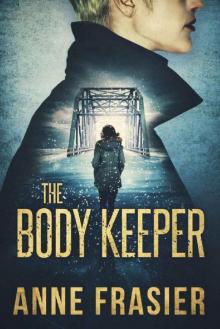 The Body Keeper
The Body Keeper Hush
Hush Play Dead
Play Dead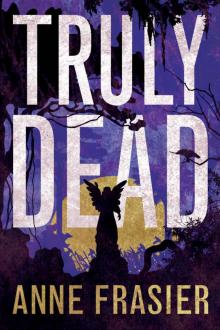 Truly Dead
Truly Dead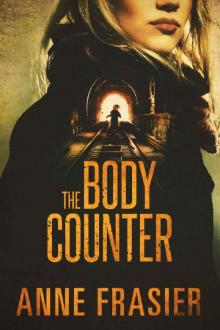 The Body Counter
The Body Counter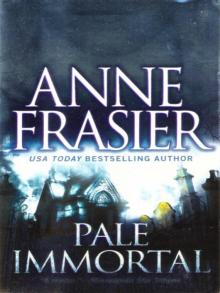 Pale Immortal
Pale Immortal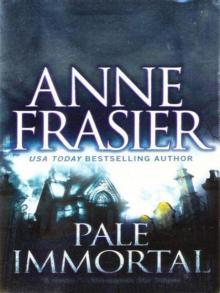 (2006) Pale Immortal
(2006) Pale Immortal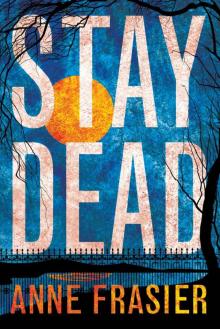 Stay Dead (Elise Sandburg series)
Stay Dead (Elise Sandburg series) Sleep Tight
Sleep Tight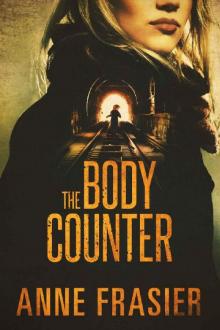 The Body Counter (Detective Jude Fontaine Mysteries Book 2)
The Body Counter (Detective Jude Fontaine Mysteries Book 2)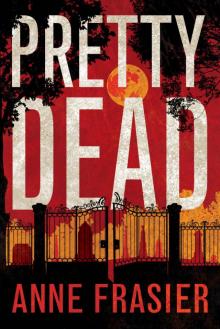 Pretty Dead
Pretty Dead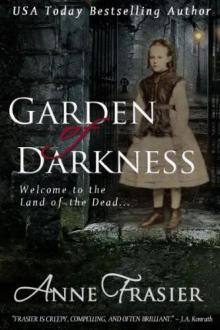 Garden of Darkness
Garden of Darkness